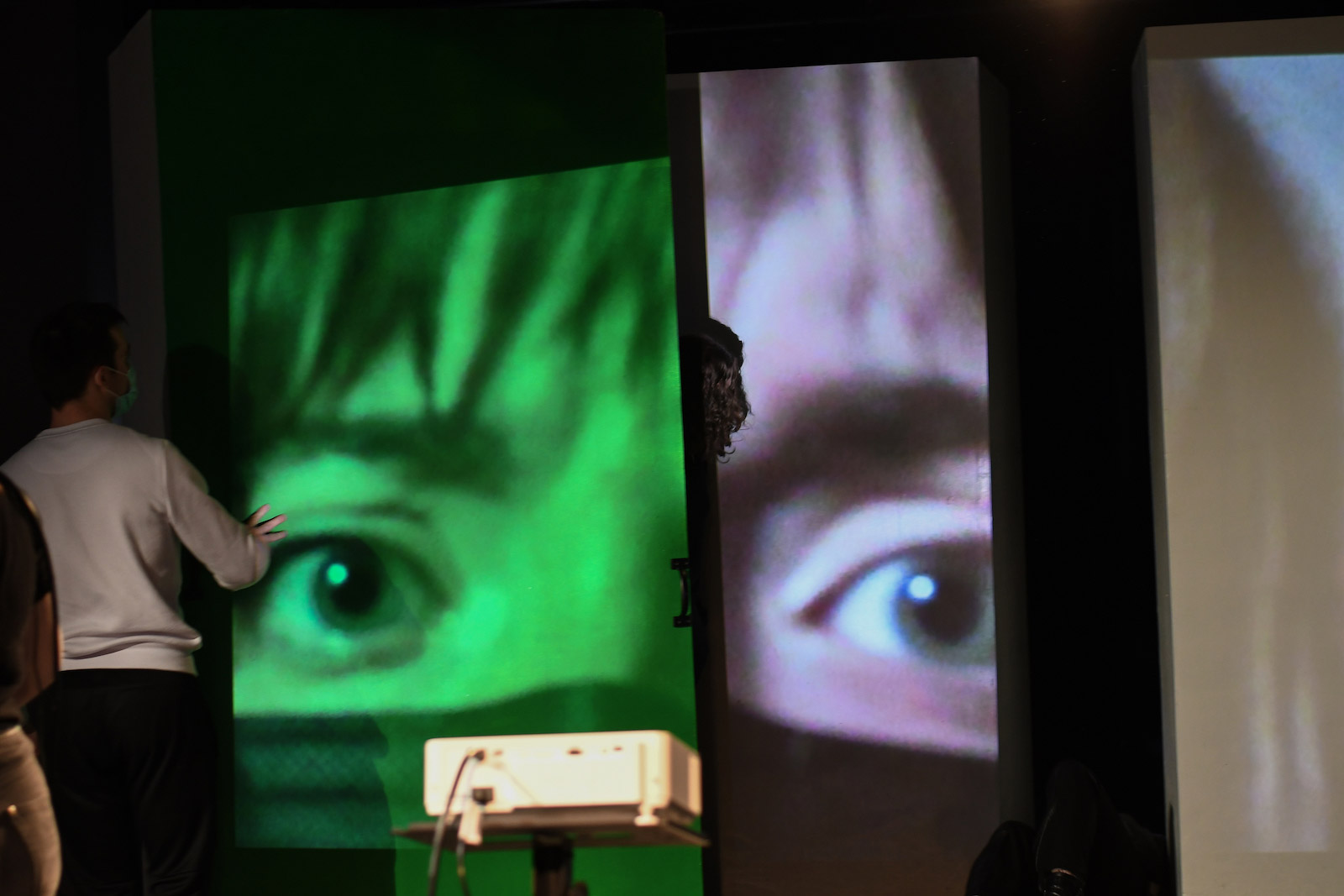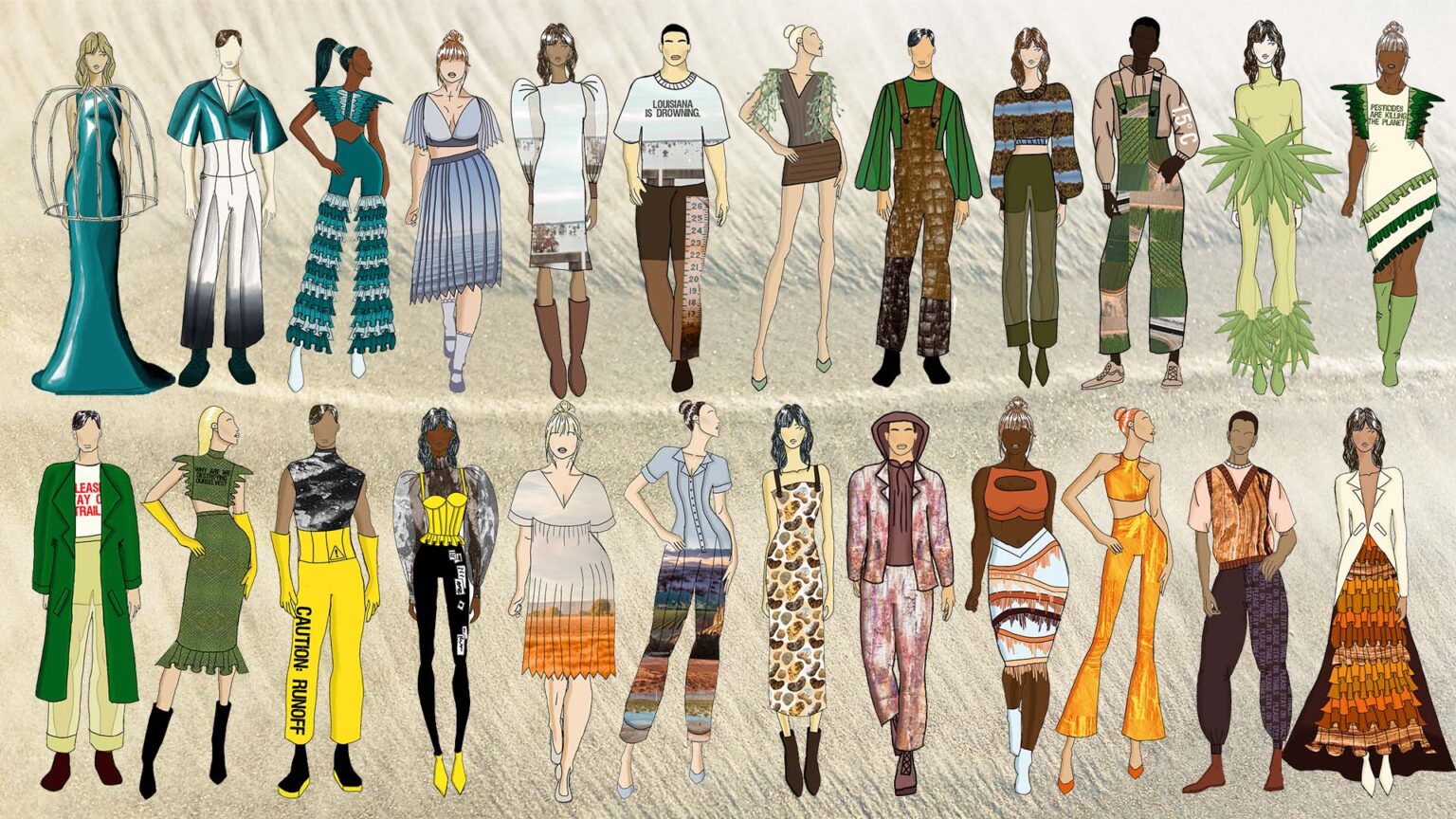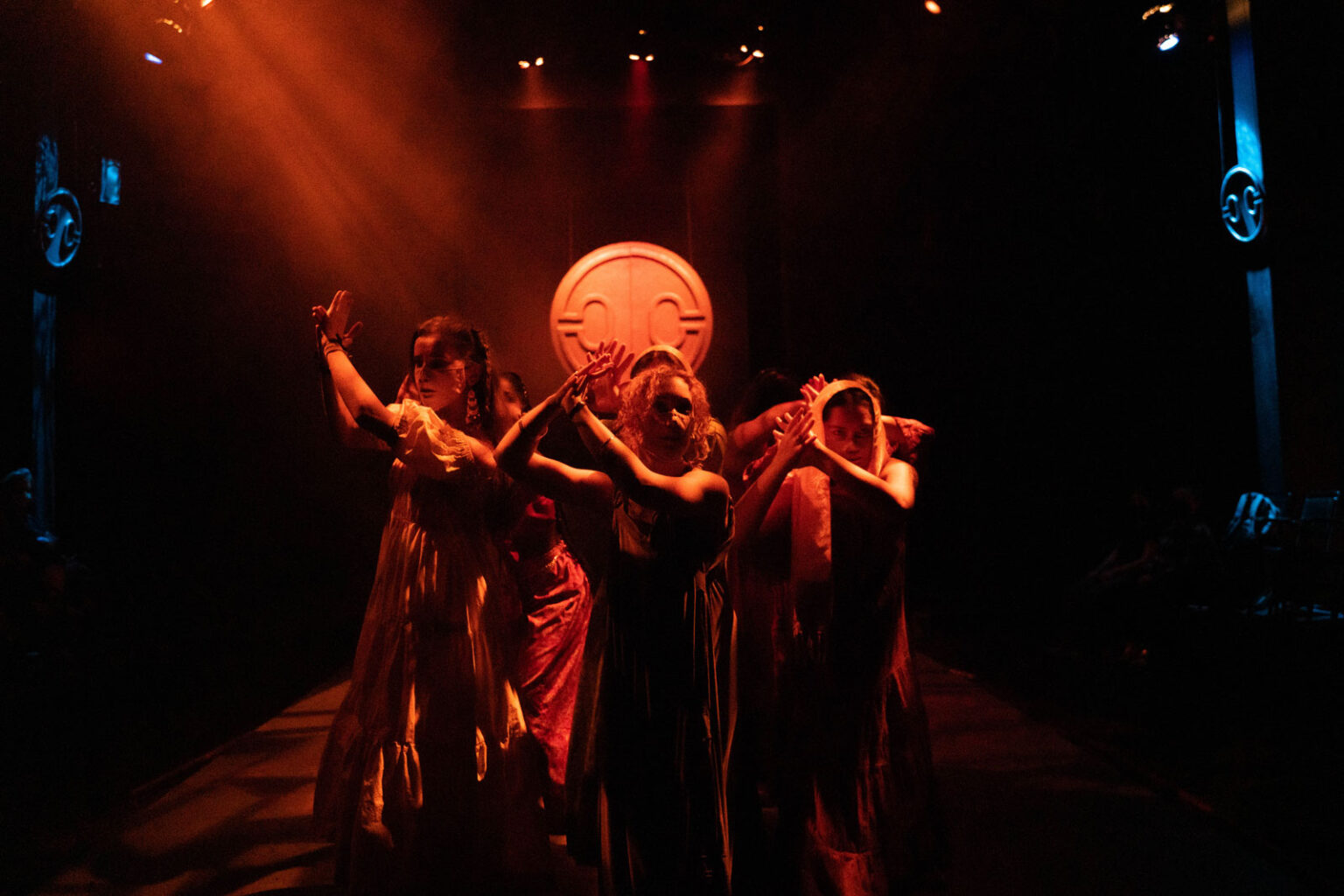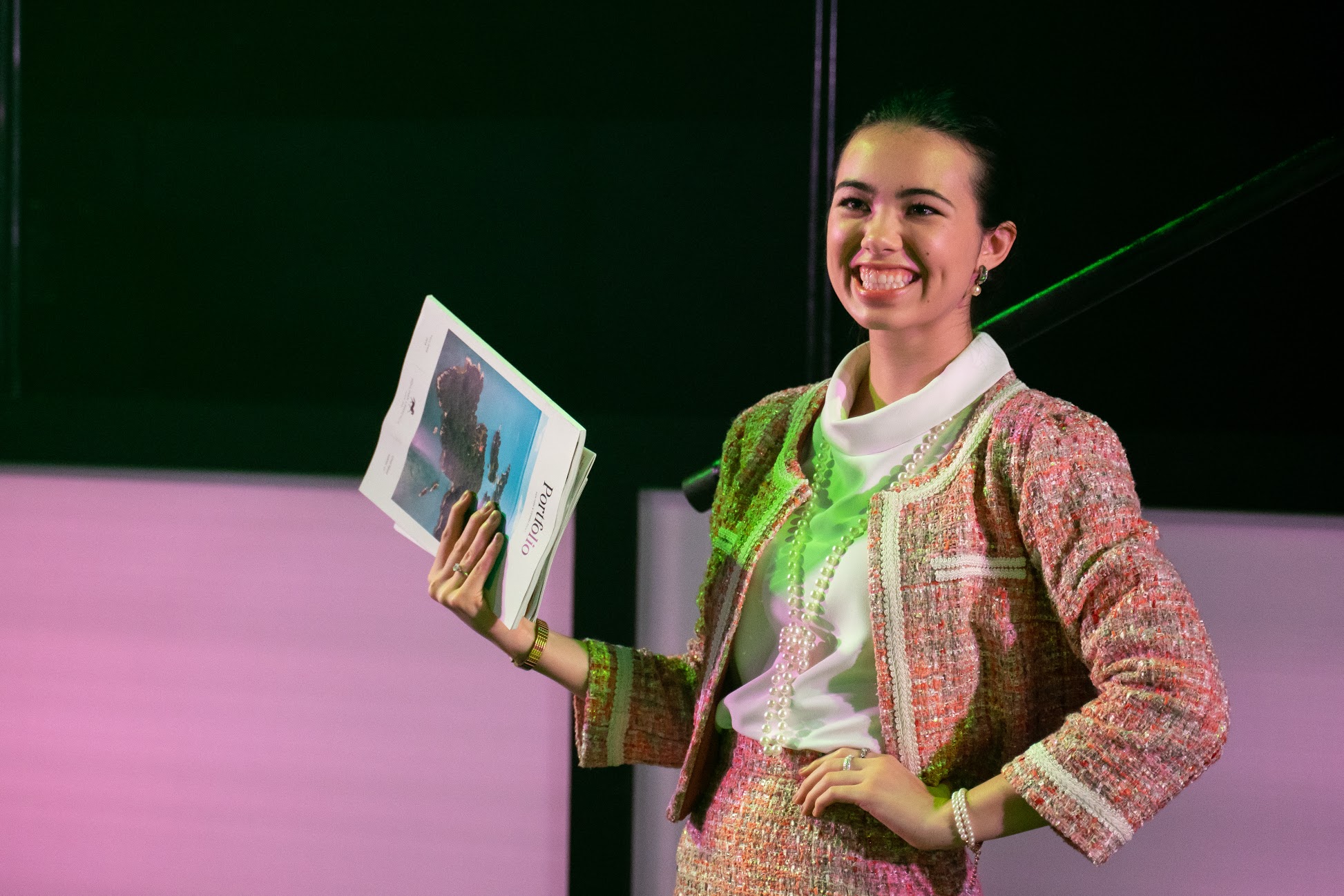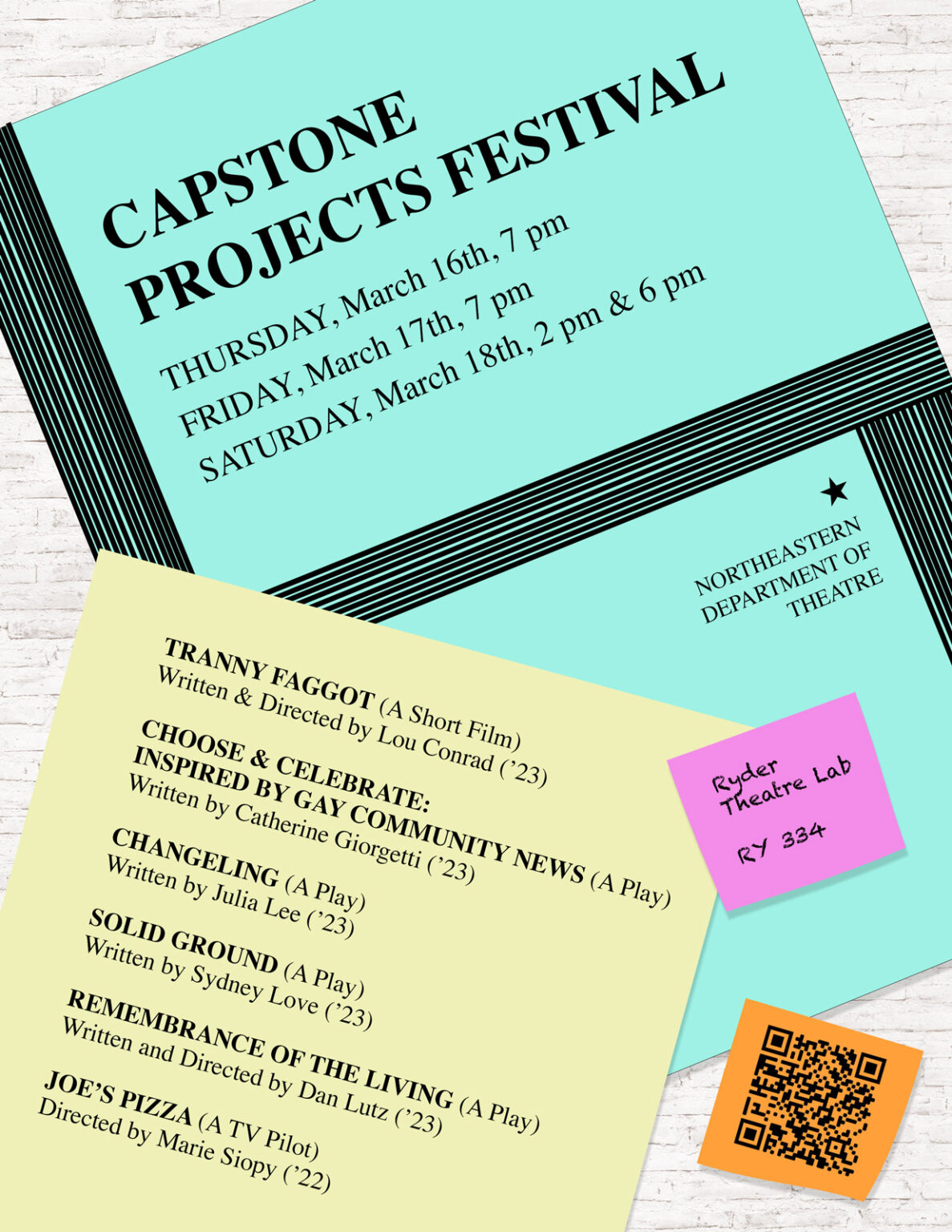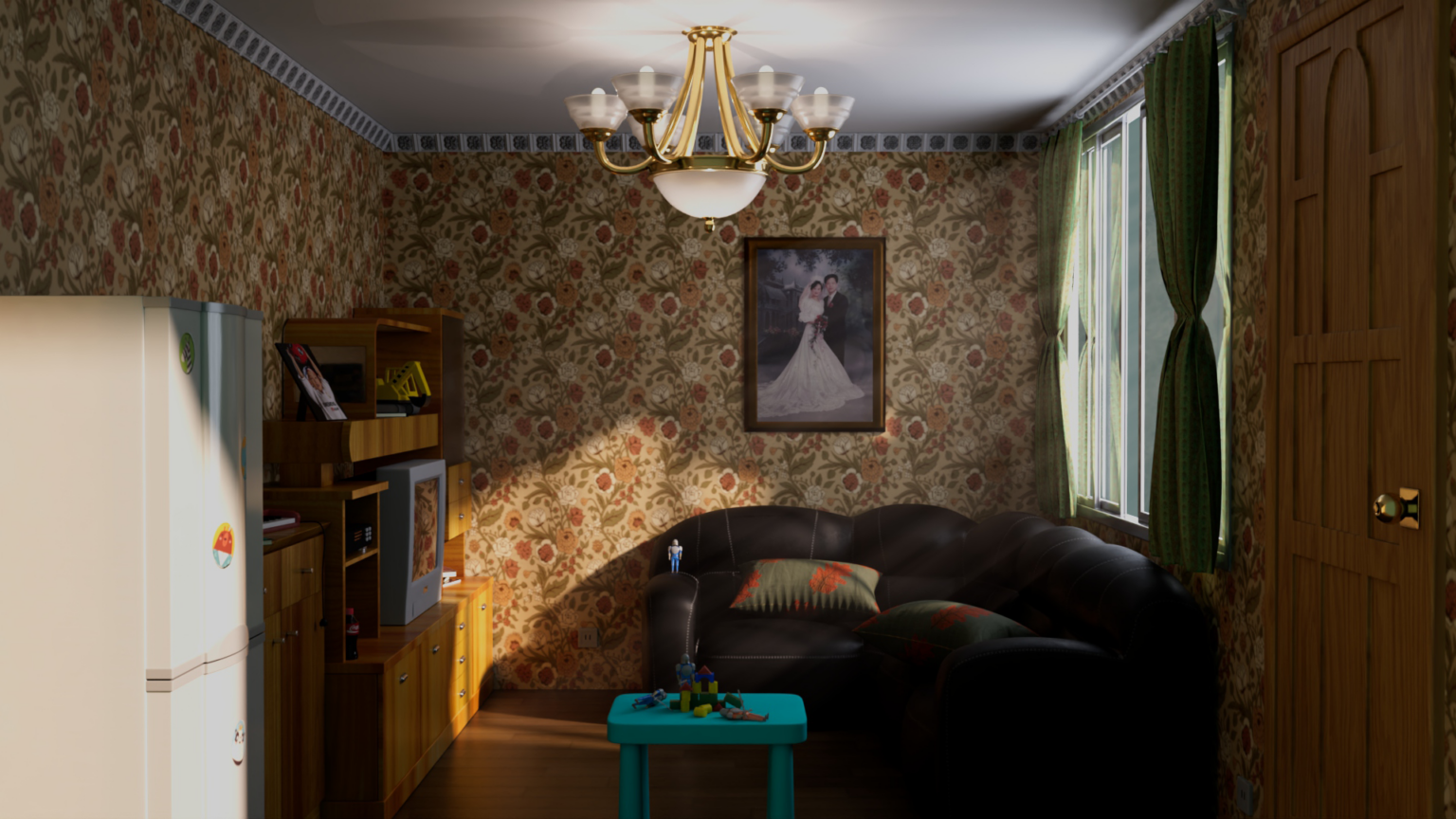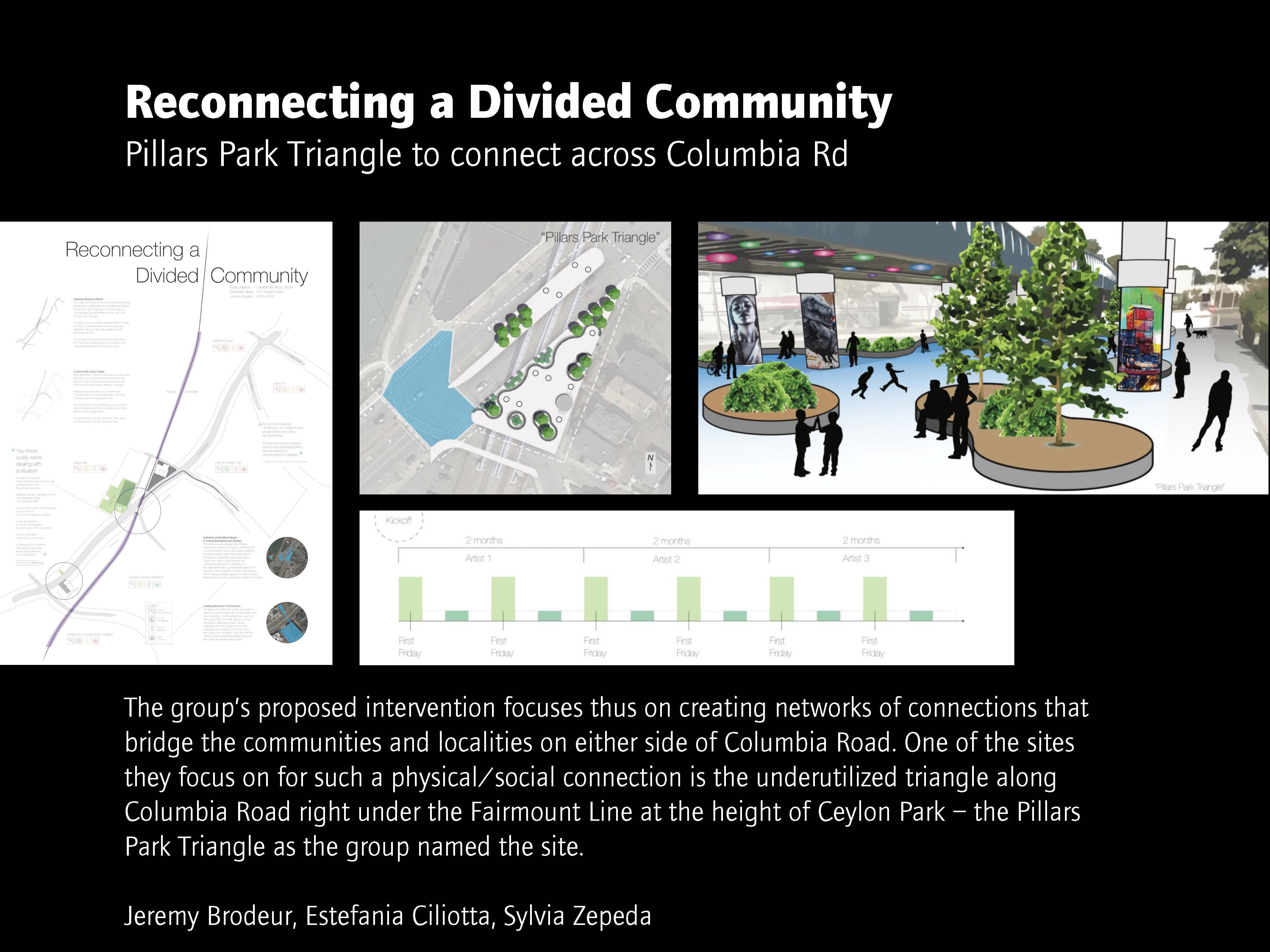Multidisciplinary Skills
Share
Design is the practice-based discipline raising important questions about—and providing significant answers to—how we live. Designers are needed when we don’t know what is needed. Designers propose alternative futures and create new choices using design principles and processes to create, compose, and construct meaning in diverse knowledge fields. Designers seek a broad understanding of principles and systems of perception, communication, and action.
Theatre Learning Outcomes
Students who graduate from Northeastern University with a degree in theatre will be able to:
- Apply a broad and deep knowledge of theatre as an art form to their work, including:
• Foundational skills in performance, design, and production
• Comprehensive understanding of theatre history, theory, and literature
• Oral, visual, written expression of ideas with clarity and originality - Make theatre with integrity
• Create or interpret a play
• Collaborate generously
• Apply a personalized technique to the process of making imaginative, innovative theatre - Make informed choices as theatrical entrepreneurs through professional readiness
- Reflect on the cultural, social, and ethical impact and contributions that theatre has made to societies and communities
Design Learning Outcomes
- Apply iterative design processes to create, revise, evaluate, and develop effective prototypes and innovative solutions.
- Engage human-centered design research methods and systems thinking to identify and understand values, goals, motivations of intended audiences as a mode of inquiry, question framing and guide to action.
- Develop a high level of craft and technical skills in a relevant range of media and tools and effectively weigh applicability for intended audiences and outcomes.
- Develop and realize intent, concept and content with awareness of context and consequence.
- Implement visual patterns incorporating text, image, diagram including temporal and spatial representations to recognize, categorize, and articulate significant form and meaning
- Employ and embody ethical practices, team and cross-disciplinary collaboration, and effective communication and presentation skills.
- Apply relevant communication theories and principles and appreciate the pervasive and long-term impact of design decisions on people and societies.
Interaction Design concentration learning outcomes
- Develop personas, scenarios, wireframes, information architecture, navigation patterns and extensibility plans to create affordances and interfaces that invite interaction and allow end-users to achieve goals.
- Apply evaluative usability and efficacy testing methods to determine interface usefulness, desirability and/or feasibility.
- Demonstrate basic fluency in programming, code development patterns and analytical thinking associated with input and retrieval of data and support of dynamic interfaces.

